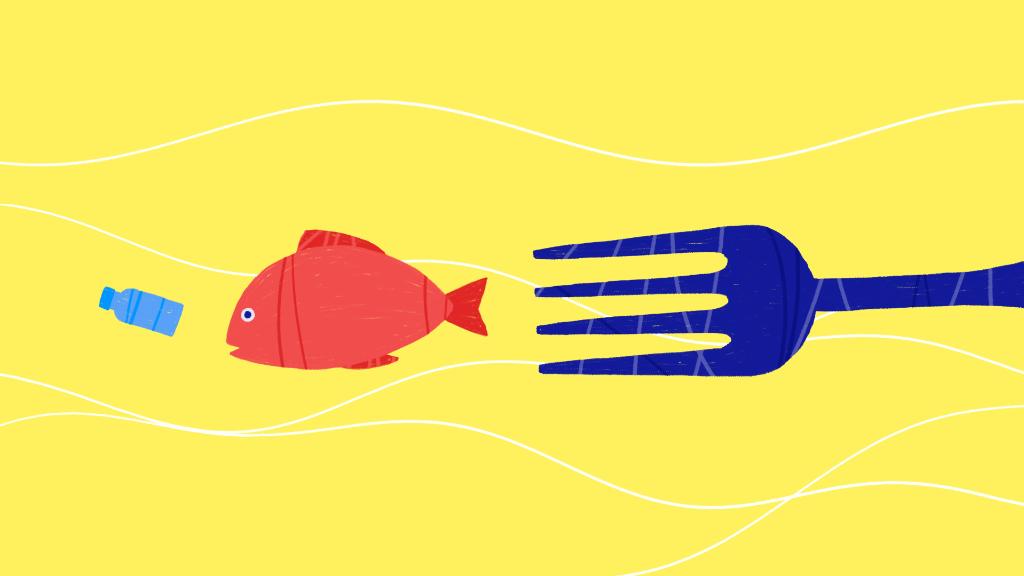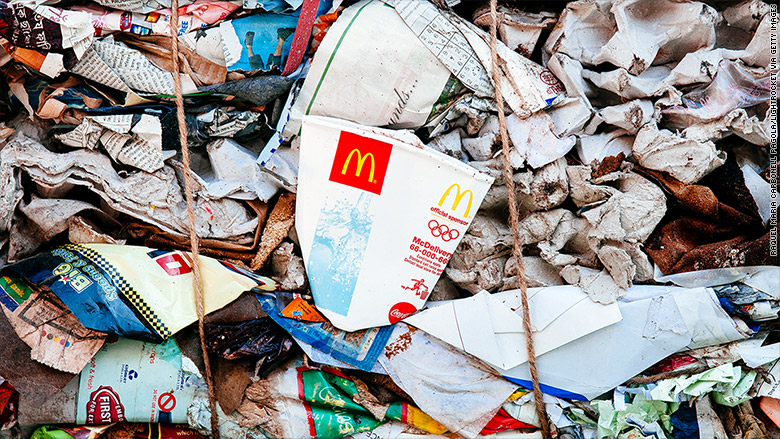
McDonald's and Starbucks have been caught in a crackdown on plastics in India.
The restaurant chains were among dozens of companies hit with fines in Maharashtra state — India's second-largest with a population of more than 100 million — at the weekend, a government official said.
The ban on single-use plastic items including shopping bags, food containers and cutlery, was announced in late March but went into force on Saturday.
Related: How big brands are trying to pull off a recycling revolution
Indian Prime Minister Narendra Modi called plastic a "menace to humanity" in a speech earlier this month. His government has pledged to eliminate single-use plastic in India by 2022, joining a global campaign that has been given added urgency by research showing there will be more plastic by weight than fish in the oceans by 2050.
At least 25 of India's 29 states have full or partial bans on single-use plastics, but they're often not strictly enforced.
Maharashtra is cracking down immediately, forcing companies to change their ways.
Related: McDonald's to scrap plastic straws in UK and Ireland
Hardcastle Restaurants, the franchisee which runs McDonald's (MCD) outlets in Maharashtra, said it has begun using wooden cutlery, paper cups and straws made of corn starch.
But the chain was fined because it has not yet found similar alternatives for delivery items such as plastic lids for drinks, a spokesperson for McDonald's India told CNNMoney. McDonald's has joined restaurant associations in the region in asking for exemptions from the ban for delivery and takeaway orders, the spokesperson added.
Starbucks (SBUX), which runs its stores in India through a joint venture with the Tata Group, declined to comment specifically on the fine or the Maharashtra ban.
But a Tata Starbucks spokesperson said the company was committed to environmental sustainability and already uses paper bags, biodegradable straws and wooden cutlery at many of its Indian stores.
"We comply with the local laws and regulations in every market we operate in," the spokesperson added.
Related: Are you eating plastic?
Fines for breaking the ban are small for global companies. They start at 5,000 rupees ($73) for first time offenders, rising to 25,000 rupees ($367) for subsequent violations. Serial offenders could face jail time.
But the ban poses a much bigger challenge for smaller businesses and retailers. Industry associations have warned of dire consequences, starting with the plastics industry.

Neemit Punamiya, secretary of the Plastic Bags Manufacturers Association of India, estimates that India's plastic industry could lose over $2.2 billion and 300,000 jobs as a result of the ban, local media reported.
Hipen Bheda, president of the All India Plastics Manufacturers' Association, said the ban in its current form was unclear and so widely drawn that it could harm the economy.
"The decision has to be to seek solutions to the pollution or the littering and not on killing the industry," he told CNN, adding that the industry was keen to work with government to improve waste management.
Related: Plastic straw makers brace for bans
So far the government of Maharashtra has only exempted plastic containers used to package medicines, milk and solid waste, as well as plastic items for export.
Authorities in Mumbai, India's financial hub and the capital of Maharashtra state, collected fines worth 400,000 rupees ($5,900) on Sunday from more than 80 establishments, a senior official told CNNMoney. Officials in Pune, another of the state's major cities, reportedly collected a similar amount.
Related: Big businesses are saying no to plastic trash in the UK
India's campaign to cut back on plastic usage follows similar moves in the European Union and the United Kingdom.
Big global companies are also doing their part, with Swedish furniture giant IKEA imposing a ban on single-use plastic earlier this month.
-- Vinayak Dewan and Sreoshi Mukherjee contributed to this article.

